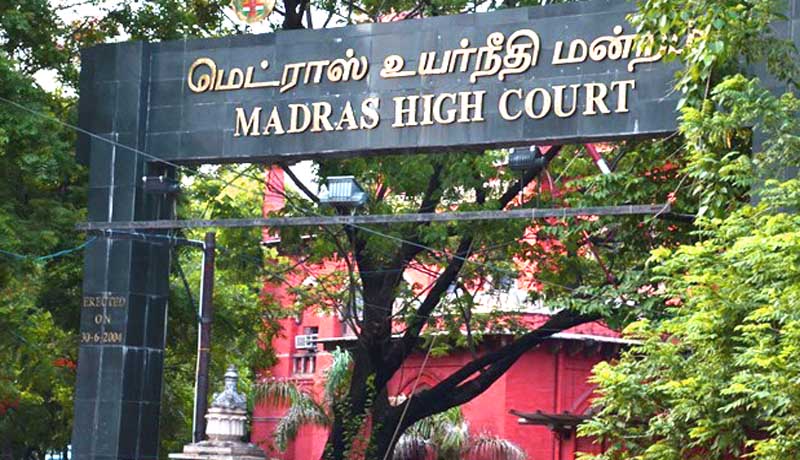“The Amount Paid as Anti-Dumping Duty would Form Part of Sale Price”: Madras High Court [Read Judgment]

GST Cash Payments – Belated Cash Payments – Service Tax – Madras High Court – Taxscan
GST Cash Payments – Belated Cash Payments – Service Tax – Madras High Court – Taxscan
The Division Bench of the Madras High Court, comprised of Justices V. Ramasubramanian and T. Mathivanan, recently opined in the case Flextronics Technologies (India) Private Limited v. State of Tamil Nadu that the amount paid towards Anti-dumping duty would form part of “sale price”. The Court was deciding a revision-petition filed by the petitioner company.The highlights of the judgment are the following.
The petitioner-company is authorised to carry on certain operations in their unit located within the Special Economic Zone at the SIPCOT Industrial Park, Sriperumbudur, Kancheepuram District. In the course of the authorised operations, the petitioner manufactured and sold Optix OSN Series Intelligent Optical Transmission Platforms, referred to as "Optical Cabinets", to a company by name Huawei Telecommunications (India) Limited during the period from April 2010 to March 2011.For the purpose of manufacturing the aforesaid Optical Cabinets, the petitioner imported various components from a company by name Huawei Tehnologies Co. Ltd., China. Since these imports were made to a company located in SEZ, no Duty of Importation was levied upon the petitioner, in view of the exemption contained in Sections 7 and 26 of the Special Economic Zones Act, 2005.After importing the components without payment of basic Customs Duty and CVD, the petitioner manufactured Optical Components and sold them to Huawei India. The sale was subject to payment of appropriate VAT under the TNVAT Act, 2006 and Central Sales Tax Act under the CST Act, 1956.
The sale and supply of goods between the petitioner and Huawei India were on an "ex-works basis" in terms of a Supply Agreement dated 31.3.2010. Under Clause 3.2.2 of the Supply Agreement, the petitioner is obliged to sell and deliver the goods at the SEZ facility gate in Chennai. Thereafter, it is the obligation of the purchaser to clear the goods from the SEZ, upon payment of all applicable Duties and Taxes. As a matter of fact, the purchaser, namely Huawei India, filed Bills of Entry for Home Consumption and cleared the goods from the SEZ, by paying applicable Customs Duty, in their capacity as importer-buyer.
In the meantime, the Ministry of Finance, Government of India issued a Notification No.125/2010-Customs, imposing Anti-Dumping Duty at the rate of 266% on the import of certain transmission equipment and subassemblies and components, when imported from China. The said notification was given retrospective effect from 8.12.2009, on account of the fact that a provisional levy had already been made earlier.
The petitioner raised the following issues before the Court.
i) Whether on the facts and in the circumstances of thecase, the learned Appellate Tribunal was correct in law in holdingthat the Anti-Dumping Duty on the imported components paid bythe buyer (customer of the petitioner) formed part of the "saleprice" of the goods manufactured and sold by the petitioner to thebuyer under the provisions of the Tamil Nadu Value Added TaxAct, 2006?
(ii) Whether on the facts and in the circumstances of thecase, the learned Appellate Tribunal was correct in law in holdingthat tax and penalty are imposable upon the petitioner under theprovisions of the Tamil Nadu Value Added Act, 2006? and
(iii) Whether on the facts and in the circumstances of thecase, the learned Appellate Tribunal was correct in law in holdingthat the petitioner is not entitled to refund of tax inadvertentlypaid on countervailing duty discharged on the finished goodscleared from the petitioner's SEZ unit?"
While concluding the first issue,that whether the amount paid towards the anrti-dumping duty will for part of “sale price”, the Court held that “the anti-dumping duty actually became leviable from the time of export from China into India, but was not actually collected due to the protective cover given by the Special Economic Zones Act. The moment the goods went out of this protective cover, the duty automatically got attached to the goods and hence, the inclusion of the same in the sale price for the purpose of levy of value added tax is in order.”
Further, the Court directed to remove the penalty imposed on the petitioner, which was later confirmed by both the appellate authorities. Regarding the third issue, i.e, whether the learned Appellate Tribunal was correct in law in holding that the petitioner is not entitled to refund of tax inadvertently paid on countervailing duty discharged on the finished goods cleared from the petitioner's SEZ unit, Hon’ble Justice V.Ramasubramanian expressed a view that “What was cleared by the ultimate purchaser, namely Huawei India from the unit of the petitioner in the Special Economic Zone was the finished product manufactured by the petitioner. In chronology, this was the second clearance, assuming that it is a clearance. There was actually a first clearance of the imported goods. This first clearance was made by the petitioner, when they imported the components from Huawei Technologies Co. Ltd., China. This clearance was allowed to be made without payment of duty because of the location of the petitioner in a Special Economic Zone. The third question of law is raised by the petitioner, by forgetting for a moment that there were actually two clearances in this case. Hence, the third question of law has also to be answered against the petitioner.”
Read the full text of the Judgment below.
[googleapps domain="drive" dir="file/d/0B3j3oXdY53gVT0VJbnd6c0x5R3M/preview" query="" width="640" height="480" /]

